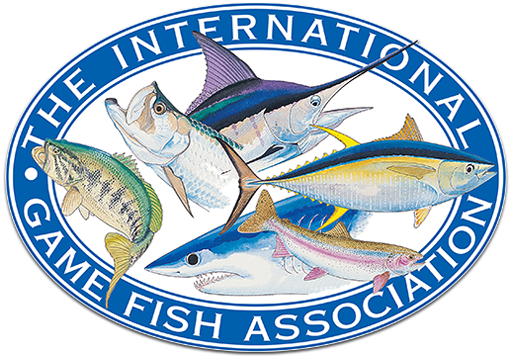Forage Fish Research Program Fellowship Update

In May 2023, the Florida Forage Fish Coalition consisting of the IGFA, The Pew Charitable Trusts, Wild Oceans, The American Sportfishing Association, Florida Wildlife Federation, Fish Florida, Angler Action Foundation, and Tampa Bay Estuary Program hosted the 7th Forage Fish Data Workshop with the FWC Fish and Wildlife Research Institute (FWRI) in St. Petersburg, Florida, US. Presentations were given by Forage Fish Research Program (FFRP) fellows and FWRI priorities for the 2023-2024 fellowships were discussed. This year the fellowship program’s data availability expanded with data made available from the Southwest Florida Water Management District (SWFWMD) and new coalition partners at the Tampa Bay Estuary Program (TBEP).
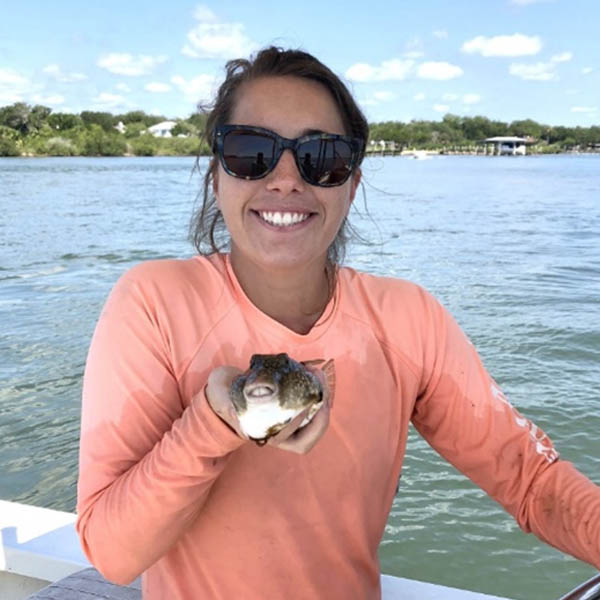
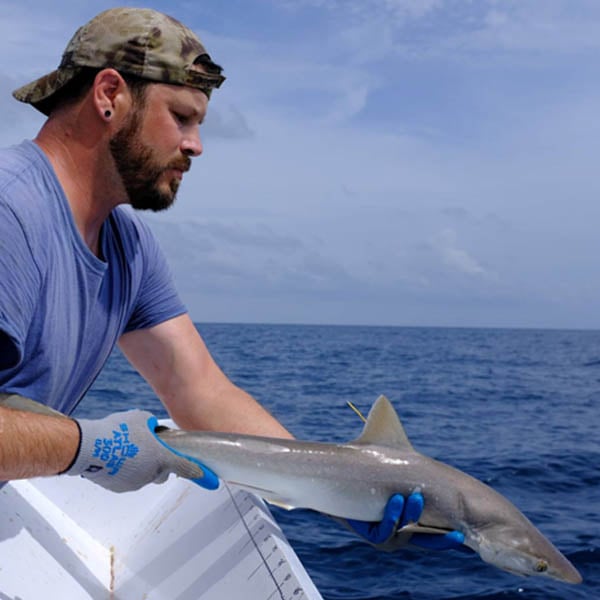
The 2022-2023 fellows, Dakota Lewis and Barry Walton, each presented their impressive results. Dakota, a PhD student at the University of Florida, constructed a combination of machine learning statistical models using FWRI Fishery Independent Monitoring (FIM) data on fish community, seagrass, and water quality. Dakota then used environmental and habitat data to train the models and group communities into sub-basins within Florida Bay to explore simulated future scenarios based on environmental changes created by Everglades restoration.
Barry, a PhD student at Florida State University, is the first FSU student to be awarded an FFRP fellowship, further increasing the program’s network of Universities within Florida. Barry’s project focused on Apalachicola Bay and couples FWRI’s (FIM) catch data with ecological and food chain data to examine prey/forage availability and presence in the diet of redfish and spotted seatrout, as well as investigate predator-predator effects and competition using fatty acids and stable isotopes. Barry’s research explored the hypothesis that redfish and spotted seatrout are partitioning habitat and food resources within Apalachicola Bay.
During the workshop, presentations were given by IGFA, FWRI, TBEP, and SWFWMD on what data is available for the 2023-2024 fellows and outlined their organizations’ research priorities. Potential fellowship candidates were in attendance and, following the workshop, the request for proposals was sent to all major Florida Universities. Proposals were due at the end of June and the coalition received several excellent project ideas. Two candidates were chosen in July 2023 and began their fellowships at the start of August 2023.
We would like to congratulate this year’s 2023-2024 FFRP fellows, Christopher Crowder from the University of Central Florida and Hallie Repeta from the University of South Florida!
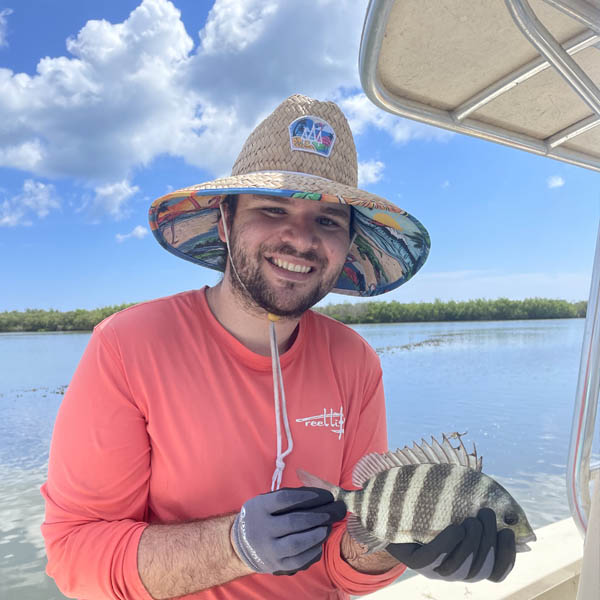
Christopher’s project will focus on the use of a habitat mosaic approach to better understand fish community dynamics in Tampa Bay. The project seeks to understand how shifting benthic habitats influence the abundance and structure of fish communities including both forage and associated predators. His study aims to quantify how forage fish abundance and diversity dynamics shift across essential fish habitat, and in turn, explore the influence of forage fish availability and habitat mosaic on the abundance of sportfish. Specifically, this project will answer the following questions:
1) What habitat characteristics and environmental factors best predict changes in the forage fish community?
2) What habitat, environmental, and forage fish factors best predict changes in the sportfish community?
3) How can the knowledge regarding these predator-prey-habitat mosaic relationships be used to develop more effective management strategies for moving sportfish toward sustainability?
By using cutting-edge statistical analyses to assess multiple pressures impacting fish communities simultaneously, this project will quantify changes in forage and sportfish populations in relation to habitat characteristics, environmental factors, and sportfish prey availability. The results from this study will yield a more predictive understanding of forage and sportfish dynamics; provide insight to better inform wildlife managers, habitat management, stock assessment, and restoration efforts; and guide regulators on the status and future of ecologically and economically important fish species on Florida’s west coast. Ultimately, this will help local communities, the state of Florida, and the nation achieve the goal of healthier and more sustainable coastal ecosystems.
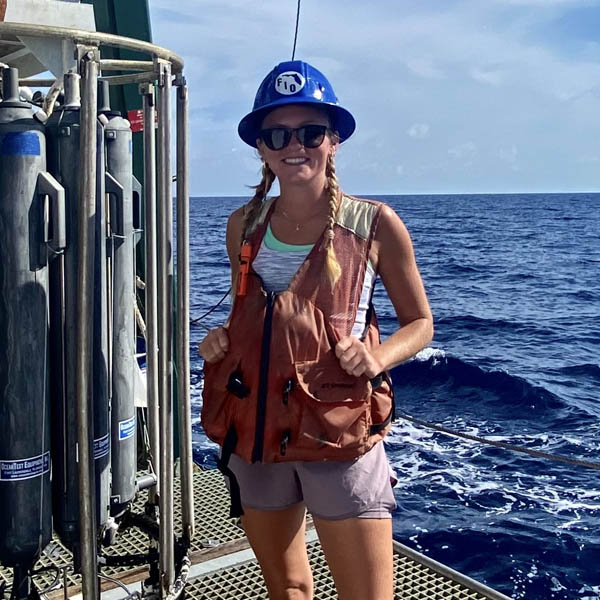
Hallie’s project will focus on her lab’s ongoing work with the Gulf of Mexico Atlantis model which is a very complex 3-dimensional “end-to-end” ecosystem model capable of exploring predator-prey dynamics between forage fish and predators. The model can simulate fishery and population dynamics as well as the impacts of environmental perturbations. Hallie’s project proposes updating the GOM Atlantis model for forage species and their predators using surveys and monitoring data from the (FIM) program and data from the Southeast Area Monitoring & Assessment Program (SEAMAP). The study will address the following questions:
1) Does the health of forage fish impact the variability of reef-associated and pelagic predators under environmental stochasticity?
2) How does the biomass of forage fish affect ecosystem carrying capacity and safe harvest rates for reef-associated and pelagic predator fish species?
3) How does seagrass restoration affect forage fish biomass and the delivery of these ecosystem services?
This research will improve our understanding of forage fish intrinsic trophic linkages, population dynamics, and the ecosystem services provided by forage fish in estuarine and offshore ecosystems. Further, it will provide predictors of forage fish and ecosystem resilience thresholds under varying natural and anthropogenic pressures, which supports more effective and efficient holistic management.
We look forward to working with our 2023-2024 FFRP fellows and learning more about the critical forage fish species that help make Florida the fishing capital of the world.
For more information on the Forage Fish Research Program, please visit floridaforagefish.org.
